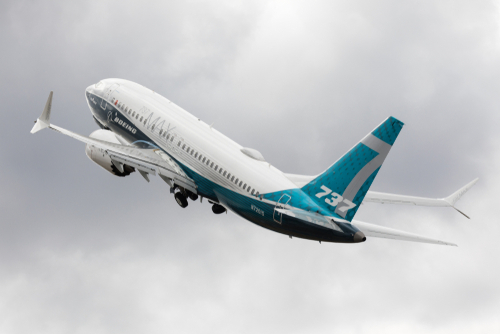
A report from the House Committee on Transportation and Infrastructure has found that serious flaws in design, management, and oversight of the Boeing 737 MAX led to two deadly crashes that killed 346 people.
U.S. Rep. Peter DeFazio (D-OR), chair of the committee, and Rep. Rick Larsen (D-WA), chair of the subcommittee on Aviation, released the report Wednesday.
The 238-page report found repeated and serious failures by both The Boeing Company and the Federal Aviation Administration. The report identified five central themes and more than six dozen investigative findings.
“Our report lays out disturbing revelations about how Boeing—under pressure to compete with Airbus and deliver profits for Wall Street—escaped scrutiny from the FAA, withheld critical information from pilots, and ultimately put planes into service that killed 346 innocent people. What’s particularly infuriating is how Boeing and FAA both gambled with public safety in the critical time period between the two crashes,” DeFazio said. “On behalf of the families of the victims of both crashes, as well as anyone who steps on a plane expecting to arrive at their destination safely, we are making this report public to put a spotlight not only on the broken safety culture at Boeing but also the gaps in the regulatory system at the FAA that allowed this fatally-flawed plane into service. Critically, our report gives Congress a roadmap on the steps we must take to reinforce aviation safety and regulatory transparency, increase Federal oversight, and improve corporate accountability to help ensure the story of the Boeing 737 MAX is never, ever repeated.”
The themes included: production pressures that jeopardized the safety of the flying public; faulty design and performance assumptions; a culture of concealment; conflicted representation, and Boeing’s influence of the FAA’s Oversight structure.
“The Committee’s thorough investigation uncovered errors that are difficult to hear, but necessary to confront about the 737 MAX certification,” Larsen said. “This report, combined with the findings and recommendations from the Lion Air and Ethiopian Airlines investigations, National Transportation Safety Board, Joint Authorities Technical Review and other entities, serve as a roadmap for changes to the FAA certification process. The 346 victims of the two tragic crashes and their families, as well as the traveling public, rightfully expect Congress to act. As the Committee moves into the next phase of oversight, I will continue to work with Chair DeFazio and my colleagues to address the significant cultural and structural deficiencies identified in the report in order to improve safety.”